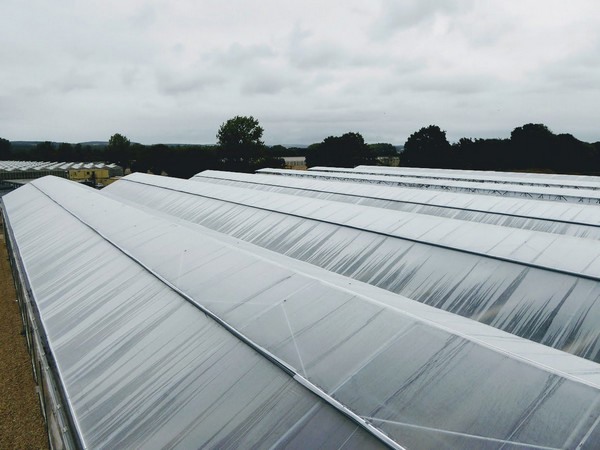Growing protected crops in full spectrum daylight is now a reality for the British fruit industry, following the first commercial installation from ETFE experts, RIPE.
ETFE (ethylene tetrafluoroethylene) is a flexible glazing material used to replace glass and polyethylene, transmitting high levels of light plus the full spectrum of UV into the growing area. For the crop, this helps to boost important outcomes such as crop health and yield, as well as improve marketable qualities, including taste, shelf life, and color.
What began as an innovative R&D facility has now translated into industry, following the first commercial installation at a berry producer in Sussex.
Charlie Hancock, Chief Executive Officer of RIPE, said: “We’ve been investigating the benefits of ETFE at our research site, the Natural Light Growing Centre, in recent years.

“The facility, run alongside agri-tech center Crop Health and Protection (CHAP), is based at the University of Warwick’s Wellesbourne Campus and has trialed a number of important experiments to quantify the benefits of ETFE ahead of launch into the market.
“With the support of our suppliers, we’re delighted to be able to finally apply these research learnings and to support a grower to change the sustainability of berry growing through innovation in construction materials.”
Aside from benefits for crop health and yield, EFTE is recyclable and long-lasting, withstanding extreme weather conditions such as hail. Whereas glass might break and contaminate a crop or injure the workforce, ETFE mitigates risk and is easily repairable.
It also has self-cleaning properties, meaning once installed, the surface structure ensures that wind and rain are sufficient to remove dirt. When no longer needed, it is fully reusable or recyclable and can be melted down and repurposed into new fluoropolymer products.
For the commercial installation, the RIPE team re-clad an existing 4000sqm fixed polytunnel structure, taking around ten days to complete the job.
Research into the technology continues at the Natural Light Growing Centre, including the RIPEHouse project – combining the benefits of ETFE and natural light growing with bespoke biostimulant formulations.
For more information: CHAP
CHAP
[email protected]
www.chap-solutions.co.uk
